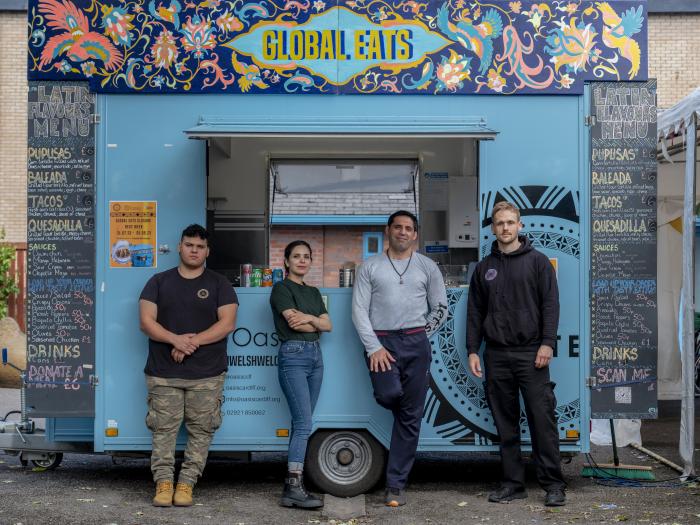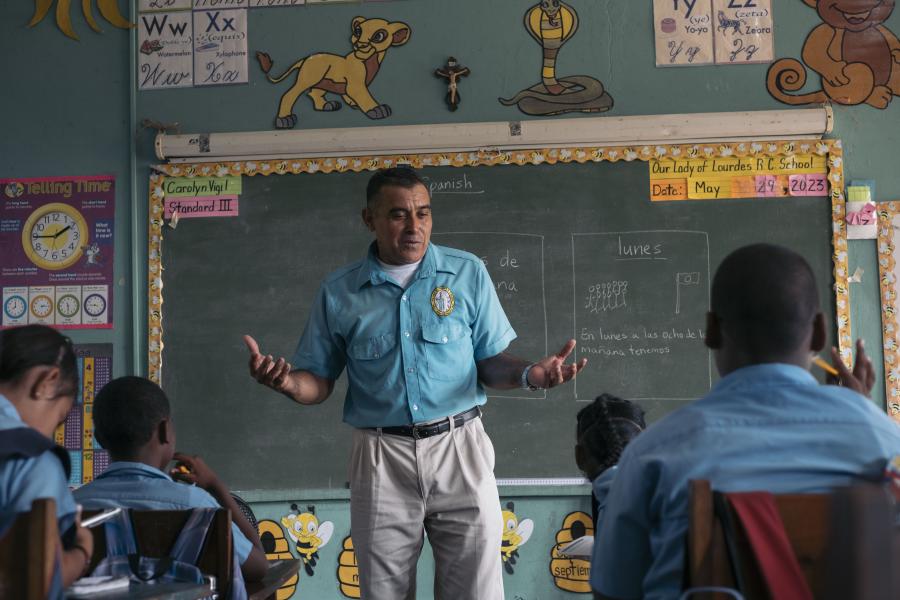2024 population planning figures
- Refugees and asylum-seekers*: 232,500
-
IDPs**: 368,200
* Forcibly displaced from El Salvador, Guatemala, and Honduras in Belize, Costa Rica, El Salvador, Guatemala, Honduras, Mexico and Panama.
**Includes 121,100 IDPs in El Salvador and 247,100 IDPs in Honduras.
2024 situation overview
In El Salvador, Guatemala and Honduras, UNHCR works with 103 partners through 49 partnership agreements and joint initiatives to promote displaced people's self-reliance and their integration in host communities. Refugee-led organizations and networks provide life-saving assistance to forcibly displaced populations and host communities.
Growing numbers of people in Central America are being forced to leave their homes by a confluence of factors including insecurity, human rights violations, poverty, inequality and the impact of climate change. Globally,the number of asylum-seekers and refugees from El Salvador, Guatemala, and Honduras has reached over 687,000 by mid-2023. Costa Rica received 21,000 new applications while Mexico received 74,800. UNHCR will continue to work with States in the region to strengthen asylum systems and expand other legal stay arrangements.

UNHCR will expand digitization of national asylum systems, strengthen staff capacity and help to reduce backlogs in Costa Rica, El Salvador, Guatemala, Honduras, Mexico and Panama.
UNHCR has expanded its presence and operational capacity in recent years to strengthen protection alternatives and encourage solutions for those affected, find ways to prevent and address forced displacement and assist States to address the root causes of flight.
By end of 2023, over 318,600 people remain internally displaced in Central America. UNHCR is scaling up prevention efforts by identifying drivers of displacement and working with communities of origin and those hosting internally displaced people.
UNHCR will continue to work with governments and other stakeholders in developing legal frameworks and public policies to respond to the needs of displaced populations.
To enhance prevention and collaborative responses, UNHCR is strengthening its advocacy and leading role in the protection clusters and coordinating with key stakeholders including central and local governments, international organizations, civil society, community organizations and displaced populations.
UNHCR will expand its support to the Regional Comprehensive Protection and Solutions Framework (MIRPS, by its Spanish acronym) implemented in Costa Rica, El Salvador, Guatemala, Honduras, Mexico and Panama to further protection and solutions, including on facilitating economic inclusion for refugees, fostering regional cooperation, and promoting education and awareness, to ensure that welcoming refugees becomes an opportunity for growth, development and social cohesion.
UNHCR will seek to broaden the base of support, including through the MIRPS Support Platform, which is currently chaired by the United States of America and has benefited from the increasing engagement of international financial institutions.
Under its system of rotating leadership, MIRPS is led by Panama in 2023, moving to Belize in 2024. The MIRPS Technical Secretariat is jointly formed by UNHCR and OAS.
